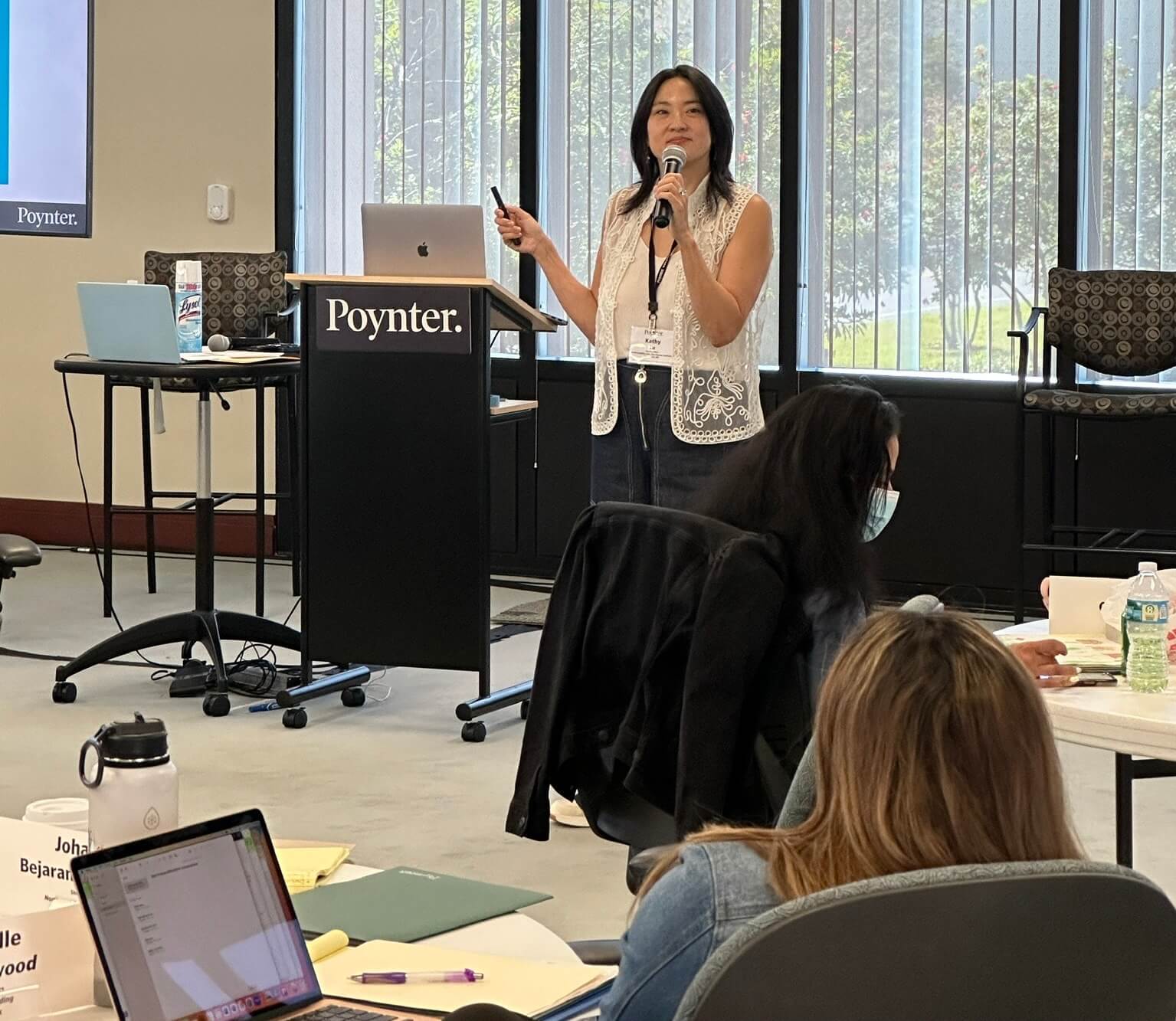Is it unfair to steer journalism students to jobs in print publications?
That question rumbled in my mind like a storm cloud after reading a provocative recent essay by Professor Clay Shirky. I learn a lot from his work and was eager to learn more.
Shirky described a recent moment in which he addressed about 200 students in a college journalism class. One student asked him, “So how do we save print?”
Shirky answered: “I was speechless for a moment, then exploded, telling her that print was in terminal decline and that everyone in the class needed to understand this if they were thinking of journalism as a major or a profession….This was a room full of people who would rather lick asphalt than subscribe to a paper publication; what on earth would make them think print was anything other than a wasting asset?”
Shirky concluded that adults were “lying to them.” Those lies, according to the professor, included futile efforts to save print by various revenue generating schemes.
I am no expert on the business side of journalism. But I know something about journalism students and their aspirations. If that young woman had been my student, I think I would have responded differently, not in terms of the literal language of her question, but in terms of its spirit.
I sense that this student is no “nostalgist” about print, to use Shirky’s language. But I’d bet that she sees something worthy in her experience over time that she associates with print. Perhaps she’d like to see her name on the cover of a book or magazine – or on the front page of a newspaper atop a powerful investigation or suspenseful narrative.
I would frame my answer to her in terms of something that Neil Postman once told me in my only personal conversation with him. He said that every technological change carries with it two competing forces: the creation of new benefits and the loss of things we treasure. He said that it was our job to take full advantage of the benefits and to compensate for the losses.
So I would think that the question “So how do we save print?” was at its essence a question about how we preserve the best things we have associated with the print tradition, which formed, in a nutshell, would include good writing, reporting, and editing in the public interest.
If she asked me about jobs, I would have told her and her colleagues that if they wanted to imagine a life for themselves as storytellers in the public interest, they might still give print – even newspapers – a try.
Given the shrinking resources of newspapers, reporting jobs are hard to come by. But consider this: In the glory days of fully-staffed newsrooms, young reporters had to wait a long time to land a big story. There were hoops to jump through, a series of beats to cover before you got to “enterprise” work.
With smaller staffs, with the replacement of older higher-paid employees with younger cheaper recruits, the “cub” reporter can now hit the ground running. There are fewer editors to guide this reporter, to be sure, but also fewer forces to rein her in.
I hope I am not a “nostalgist.” I believe in Poynter president Tim Franklin’s vision of helping print institutions build a bridge to a digital future. I am not looking for a return of some golden era of newspapering, and I don’t know anyone who is.
My residual good feeling about print is sparked instead by a recent experience as a judge of a writing contest. This was the Best American Newspaper Narrative competition, sponsored by the Mayborn School of Journalism at the University of North Texas, home of the prestigious Mayborn literary conference.
The contest included 46 narrative entries. Every one of them was exceptional in some way and worthy of praise. Every one of them advanced the public interest. They covered most of the important issues and stories of the day: mass shootings, terrorism, mental illness, immigration, education, catastrophic weather and other natural disasters, drug abuse, soldiers coming home from war, unemployment, urban renewal, child neglect, and much, much more.
Some of the best work came from the biggest papers: The New York Times, The Washington Post, Los Angeles Times, and The Wall Street Journal. The bigger regional papers also submitted outstanding work: The Arizona Republic, Tampa Bay Times, Detroit Free Press, The Charlotte Observer, The Dallas Morning News, The Atlanta Journal-Constitution, The Boston Globe, The Virginian-Pilot, Sarasota Herald-Tribune, and Asbury Park Press. While all of these papers have lost resources and staff, you can see in the quality of the submitted work, which I read in digital form, a continuing commitment to outperform their resources, to do the best possible job in both narrative and investigative modes.
And lest we think that such quality is a big dog’s game, let’s hear it for the Wausau Daily Herald, The Galveston County Daily News, Archer County News, Opelousas Daily World, and The Lafayette Daily Advertiser.
At a lunch at Poynter years ago, my colleague Don Fry declared that newspapers in print form would no longer exist by such and such a date. In front of witnesses, I bet him $1,000 that he was wrong. That date passed a while back, but I haven’t collected and don’t feel I deserve to. Taking the long view, Don was right. As is Clay Shirky. But no one practices journalism in the long view. It’s called journalism, after all, from the French word jour, meaning the day– this day — today.
Taking a job in a newspaper remains, I believe, one of the best investments a young journalist can make.
I agree that the young writers who write great stories for newspapers may not even subscribe to the print publication that supports them. It doesn’t matter. They have a chance to learn their craft, to practice the discipline of finding things out and checking them out, to write stories about the great characters who populate our towns and cities. They have the chance to right wrongs, pursue their creative vocation, and get paid for it.
And guess what, if their newspaper closes its doors tomorrow, they will be prepared for the next job – in or out of journalism – in whatever medium and platform it is expressed. They will possess the skills and the sense of mission and purpose they need for the next challenge. If I had been that journalism student, I would have hoped for something like that in reply.








Comments